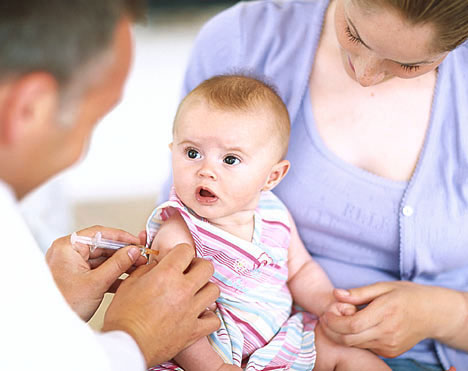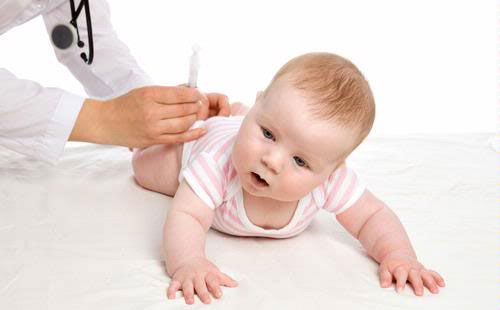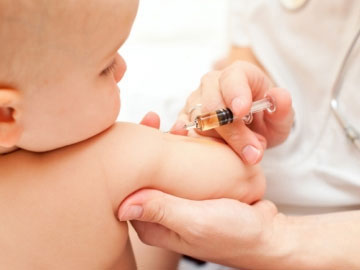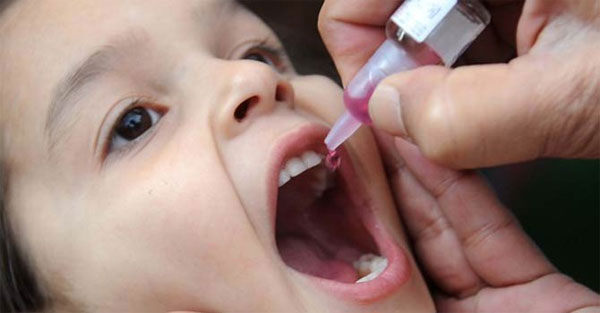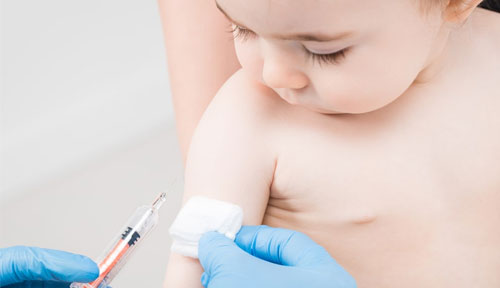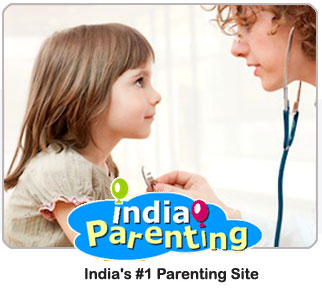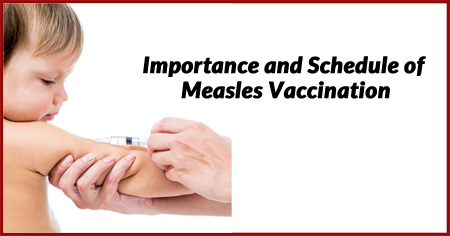 Normally, children are vaccinated against measles by giving them MMR vaccination, which is a combination of measles, mumps and rubella vaccination. Let us take a look at the importance and schedule of MMR vaccination.
Normally, children are vaccinated against measles by giving them MMR vaccination, which is a combination of measles, mumps and rubella vaccination. Let us take a look at the importance and schedule of MMR vaccination.Measles is a highly contagious illness that is caused by a paramyxovirus, which replicates in the nose and throat of an infected person, causing fever, rash, runny nose, cough and eye irritation. It also leads to ear infections, pneumonia, seizures, brain damage, diarrhea, encephalitis and also death.
The Measles, Mumps, and Rubella (MMR) vaccine is recommended to children against measles along with mumps and rubella. Nowadays, many doctors recommend MMRV vaccine that has additional protection against
varicella virus.
How Does Measles Vaccine Work?
MMR vaccine works by triggering the immune system to produce antibodies against the weakened versions of live viruses it has. The immune system will recognize the virus and immediately produce antibodies against it if you or your child comes in contact with such virus after getting vaccinated. The vaccine also prevents spreading the virus.
What Is the Recommended Dosage and Administration?
Two doses are all that you need to ward off measles. The MMR
vaccination is given into the muscle of the thigh or upper arm as a single injection.
What Is the Recommended Schedule?
Let us take a look at the recommended schedule for MMR vaccination.
For Infants and ChildrenThe two doses of MMR recommended for babies and pre-schoolers are as follows:
- First dose at 12-18 months of age
- Second dose at 4-6 years of age
If it is MMRV, then children of 12 months to 12 years of age can have the vaccine.
MMR vaccine can sometimes be administered to babies who are exposed to measles virus from 6 months of age, below which age they do not respond to it well. Babies have some antibodies already from their mothers that keep them safe from measles for the first few months.
For Older ChildrenCatch-up MMR vaccination is recommended for children up to 18 years of age who have missed or are partially vaccinated.
For Adults and Pregnant WomenTwo doses of MMR vaccine is advised for adults who are at risk of developing measles, suppose if they are international travelers or passengers on a cruise ship, or working in medical facility, etc.
Pregnant women should not take MMR vaccine. It is not advisable to get pregnant for 28 days after you are vaccinated with MMR vaccine.
Is Booster Dose Needed?
Booster dose is usually not recommended. But if a child gets a modified measles after vaccination, then a booster form of MMR is advised at 15-18 months of age followed by 5 years again.
Who Should Avoid Getting Measles Vaccine?
Under the following conditions, MMR vaccination should be avoided:
- Has a life-threatening allergic reaction to previous dose of MMR vaccine
- Has an allergic reaction to gelatin or the antibiotic neomycin
- Severely or moderately ill
- Got measles earlier as in that case a life-long immunity is produced in the body
- During pregnancy
- Checking with doctor is advisable in case taking steroids, has cancer, is immunocompromised or has blood disorder.
What Are the Possible Side-Effects?
MMR vaccine is a very safe vaccine. Except the usual soreness and redness at the site of the
shot, the other side-effects are very rare and are as follows:
- Mild fever
- Swollen glands
- Rash
- Seizure
- Low platelet count or bleeding
- Joint pain or stiffness
- Encephalitis
Measles vaccine is a highly efficient vaccine with more than 90% efficacy with a booster given in form of MMR. Even if a patient who is vaccinated develops measles, it is usually modified and mild with quick recovery and without any serious complications. If you have any concern, you must talk to your general practitioner.
When is measles vaccination given to children? Why is it important to vaccinate children against measles? Why is measles vaccination given along with mumps and rubella vaccination? Discuss here.











 Normally, children are vaccinated against measles by giving them MMR vaccination, which is a combination of measles, mumps and rubella vaccination. Let us take a look at the importance and schedule of MMR vaccination.
Normally, children are vaccinated against measles by giving them MMR vaccination, which is a combination of measles, mumps and rubella vaccination. Let us take a look at the importance and schedule of MMR vaccination.



